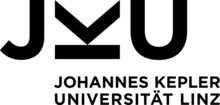04/07/2022
ESQ PostDoc Marco Quintino and colleague have published their latest findings in Quantum
Their work analyses the performance of quantum circuits and general processes to transform k uses of an arbitrary unitary operation U into another unitary operation f(U). When the desired function f a homomorphism, i.e., f(UV)=f(U)f(V), it is known that optimal average fidelity is attainable by parallel circuits and indefinite causality does not provide any advantage. They show that the situation changes dramatically when considering anti-homomorphisms, i.e., f(UV)=f(V)f(U). In particular, they prove that when f is an anti-homomorphism, sequential circuits could exponentially outperform parallel ones and processes with indefinite causal order could outperform sequential ones. They presented explicit constructions on how to obtain such advantages for the unitary inversion task f(U)=U−1 and the unitary transposition task f(U)=UT. They also establish a one-to-one connection between the problem of unitary estimation and parallel unitary transposition, allowing one to easily translate results from one field to the other. Finally, they apply our results to several concrete problem instances and present a method based on computer-assisted proofs to show optimality.
For more information see:
Navigation
Contact
ESQ Office
Austrian Academy of Sciences (ÖAW)
Atena Zalbeik-Dormayer
Boltzmanngasse 5
1090 Vienna
office(at)esq-quantum.at






